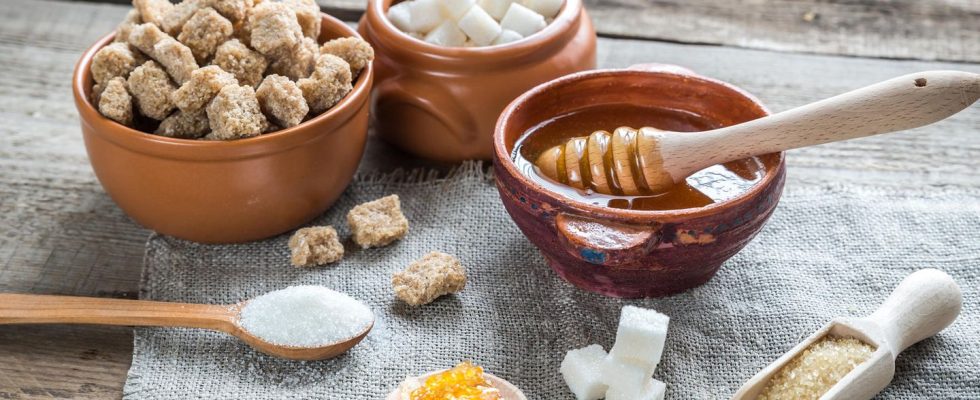Live healthy
There are many different types of sugar. Are everyone equally unhealthy? An overview
Types of Sugar: An Overview
© gettyimages
Sugar is unhealthy. We all know that. However, snacking is balm for the soul. Can we mitigate the sin somewhat with our choice of sugar?
This article comes from the stern archive and first appeared on January 25, 2022.
Fructose: sugar from fruit?
Energy source for the brain: glucose
Dextrose (glucose) has a better reputation for many people. Our brain almost exclusively uses glucose as an energy source. It is found in sweet fruits, but is also produced industrially. The body utilizes it better than fructose. According to the German Nutrition Society, you should not consume more than 50 grams of free sugar per day – that corresponds to 200 kcal and therefore 10 percent of the average total energy intake. Free sugars are mainly found in confectionery, juices, sodas and industrially processed foods.
Cheap and problematic: High Fructose Corn Syrup
High Fructose Corn Syrup is a sugar syrup made from corn sugar. It is found in more and more foods because it can be produced cheaply. Possible health problems due to the high fructose content. Suspected of promoting abdominal fat and fatty liver.
Brown sugar: the better choice?
Brown sugar is often referred to as “healthy” sugar. It is not highly purified sugar from beets or sugar cane. May contain traces of micronutrients, but in very small amounts and therefore ineffective – so it is no healthier than white table sugar.
Calorie-free: sweeteners
Sweeteners are hidden behind names such as saccharin, cyclamate or sucralose. They contain no calories, but are not healthier. They do not create a feeling of satiety, on the contrary. There are many doctors who say that sweeteners are increasing the obesity epidemic. There is also evidence that sweeteners damage the microbiome, i.e. the coexistence of healthy bacteria, especially in the intestine.
Sugar from leaves: Stevia
Stevia is obtained from the leaves of the plant of the same name. The substance does not affect blood sugar levels. It has been approved in the EU since 2011. But it should still only be consumed in small quantities; the possibility of side effects has not been conclusively clarified.
Gold of bees: honey
Honey consists of around 80 percent fructose and glucose. It is almost as high in calories as regular sugar. But honey has a higher sweetening power, so you use less of it. It also contains minerals, magnesium and vitamins C, B1 and B2 – but the amount is small and only minimally effective.
Sweeten with rice: rice syrup
Rice syrup is a plant-based food. It contains more glucose than regular sugar, but no fructose. However, the difference is small, so rice syrup is not healthier either.




